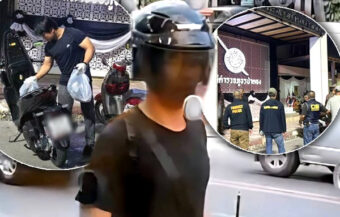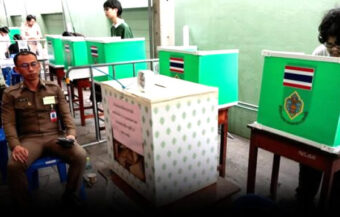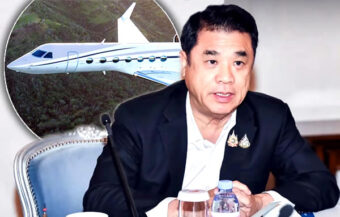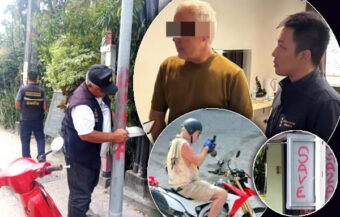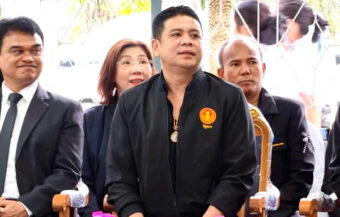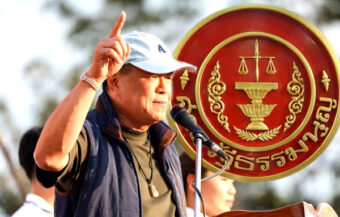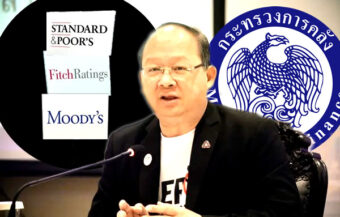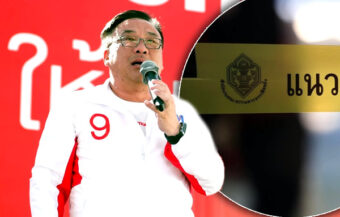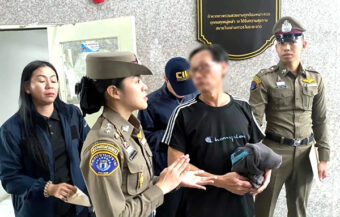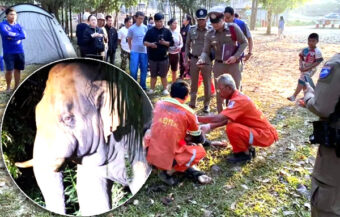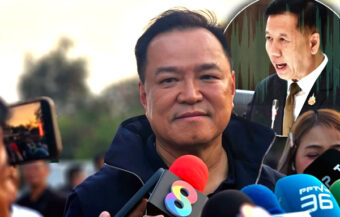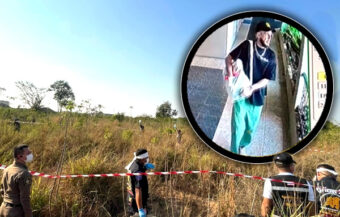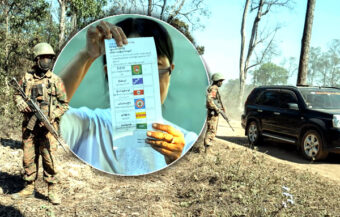Tense border talks kick off in Kuala Lumpur as Thai and Cambodian defence chiefs face off amid a tense ceasefire, outcry over civilian deaths, electricity cuts and nationalist backlash. ASEAN unity, a fragile ceasefire and the crucial US trade deal may hang in the balance.
Ministerial-level talks kick off Thursday in Kuala Lumpur between Thailand’s General Nattapol Nakpanit and Cambodia’s Defence Minister. Held under the General Boundary Committee (GBC), the meeting aims to forge a way forward and rebuild shattered trust between these neighbouring rivals. Relations are severely strained. Despite a shaky, fragile ceasefire, the relationship between the two countries remains hostile and charged. The Thai government is certainly pushing for peace, but arch-conservative critics have weaponised the conflict, using it as a rallying cry to attack the Pheu Thai-led administration.
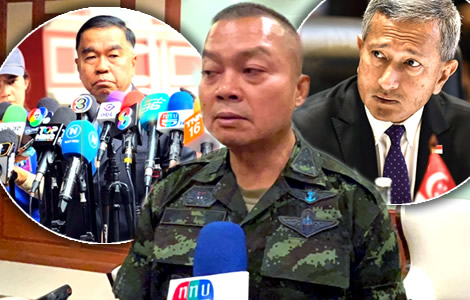
In the meantime, the Royal Thai Army, which has performed its duties admirably, has become a focal point for genuine national solidarity. Indeed, this has been bolstered by Cambodia’s indiscriminate and deadly attacks on Thai civilians on July 24th last.
Thailand’s acting Defence Minister, General Nattapol Nakpanit, arrived in Kuala Lumpur on Thursday for the crucial bilateral talks. He is meeting his Cambodian counterpart under the General Boundary Committee (GBC) framework. The purpose of the meeting is to reduce tension and rebuild trust after several days of all-out war on the border in late July.
Cambodia’s border attacks spark Thai military response as GBC talks begin under tense conditions
Since late July, clashes have flared up across the Thai-Cambodian border. In several incidents, Cambodian troops fired into Thai territory. Thai forces responded quickly, advancing or tacitly securing 11 strategic locations. These positions are now central to the ongoing negotiations.
The talks follow encouraging progress at the GBC Secretariat level earlier this week. Since Monday, the tone of discussions has softened. Both sides have reportedly agreed on basic principles. However, challenges remain.
Malaysia, as ASEAN chair, is officially hosting and observing the talks. Additionally, China and the United States are observing the process. Notably, the U.S. played a decisive role in enforcing a temporary ceasefire on July 28.
Despite international pressure, the situation on the ground remains uneasy. On Wednesday, Lieutenant General Boonsin Phadklang of Thailand’s Second Army Region issued a strong public statement. He made it clear that Thai forces will not give up the 11 occupied areas.
“These zones are legally Thai,” Boonsin declared. “We will not retreat even a single step.”
Thai army holds ground as general rejects retreat from 11 strategic zones seized during border clashes
Importantly, Boonsin emphasised that Thai troops remain on Thai soil. He rejected claims of intrusion or illegal occupation. This position is echoed by the Royal Thai Army and the Ministry of Defence.
Boonsin also addressed the sensitive issue of Cambodian soldier casualties. Bodies remain in the conflict zone, especially around Phu Makhuea in Sisaket Province. The Thai commander confirmed that his forces did not collect the corpses. Instead, he coordinated with Cambodia for their safe retrieval.
To address public health concerns, quicklime was applied in the area. This was done to eliminate odour and reduce the risk of disease. “It’s a hygiene protocol, not a message,” he added.
Tensions briefly escalated again this week in Ubon Ratchathani Province. Cambodian troops reportedly attempted to dismantle barbed wire barriers. Thai troops responded immediately. However, the standoff ended without further violence. Cambodian forces withdrew. Thai troops maintained their ground.
Thai troops maintain firm defensive stance as barbed wire standoff in Ubon Ratchathani ends peacefully
Despite Cambodian calls for withdrawal, Thailand remains unmoved. Boonsin reaffirmed this position: “Our soldiers will stay put. We’ve occupied no foreign land.”
On Wednesday afternoon, General Nattapol gave a detailed briefing at Government House in Bangkok. He confirmed that Cambodia had accepted several of Thailand’s proposals at the secretariat level. However, he admitted that Cambodia hesitated to sign any formal documents.
He explained the diplomatic framework being used. Trust is being evaluated in three levels. Level 1 is the secretariat agreement, while Level 2 is the ministerial commitment. After that, Level 3 is the test of practical implementation.
“We’ve passed Level 1,” Nattapol said. “Now we need Level 2 agreement in Kuala Lumpur. Compliance will decide Level 3.”
When asked if Cambodia accepted all proposals, Nattapol answered, “Yes, verbally. But documents must follow.”
Nevertheless, he praised Cambodia’s willingness to talk. “The atmosphere was productive. We aim for a concrete, lasting ceasefire,” he said.
GBC negotiations reach verbal agreement as Thai defence chief outlines three-level trust framework
Asked about deadlines, he declined to specify. “We’re working as fast as possible. But we won’t compromise national security,” he added.
The GBC meeting on Thursday focuses primarily on security and enforcement of the ceasefire. Other topics include compensation for affected civilians. Border demarcation and trade will be referred to the Joint Boundary Commission.
To coordinate Thailand’s internal response, Deputy Prime Minister Phumtham Wechayachai convened a special Cabinet session. The meeting resulted in the formation of a task force. Its mandate is to streamline border policy and boost public confidence.
While diplomatic talks continue, the situation remains volatile. On Tuesday, Thailand cut off electricity to western Cambodian regions near the border. This affected several towns, including Poipet, which was left in total darkness.
Thai officials said this was a direct response to recent Cambodian aggression. Military sources allege Cambodia fired indiscriminately into civilian areas. Thai towns near the border were placed on high alert.
Electricity cuts deepen crisis as Thailand retaliates for Cambodian attacks on civilians near the border
According to military estimates, Cambodian casualties in the recent skirmishes were significantly higher than Thai losses. Analysts say this has strengthened Thailand’s tactical position.
Despite this, the cost has been high. Civilians on both sides of the border report fear and uncertainty. The Thai government has disclosed that 17 civilians and 15 soldiers died in the conflict. Meanwhile, Thai-based humanitarian organisations warn that up to one hundred thousand people are still living in shelters.
The situation is also worsening for Cambodian nationals living in Thailand. Reports indicate that Prime Minister Hun Sen’s regime is threatening them. They have been told to return home or face loss of property and even citizenship.
This level of political pressure is new. It has escalated the conflict far beyond the 2011 border dispute. Many fear the situation could spiral further.
On Wednesday, Singapore’s Foreign Minister Vivian Balakrishnan issued a stern warning. He called the Thai-Cambodian conflict a serious setback for ASEAN.
“Disputes are common, but violence is a failure of diplomacy,” he said. He added that weak leadership has exacerbated the crisis.
Civilian cost rises as Cambodia threatens expats and Singapore warns ASEAN’s stability is at risk
Furthermore, Balakrishnan stressed that ASEAN cannot afford more instability. “We are already facing global economic fragmentation and rising geopolitical tension,” he noted.
His remarks were the strongest from any ASEAN member so far. They reflect growing concern that this conflict could derail ASEAN unity.
The outcome of Thursday’s GBC talks may shape regional diplomacy for years. A successful agreement could stabilise the Thai-Cambodian border. It may also revive ASEAN’s role as a peace broker.
However, failure could trigger broader consequences. Thailand’s pending tariff deal with the United States could be suspended. Sources suggest that some domestic political factions would quietly welcome such an outcome.
Nationalist groups have become more vocal in recent weeks. Some argue that international pressure is undermining Thai sovereignty. Others claim foreign mediation is biased.
ASEAN warns of collapse in credibility as future of US tariff deal and border peace hangs in the balance
According to insiders, certain actors may be deliberately obstructing talks. Their motives remain unclear, but their influence is undeniable. Political analysts warn of hidden forces working against peace.
Given this context, General Nattapol’s task is delicate. He must secure Thai interests while maintaining regional credibility. The world is watching.
14 killed and over 100,000 evacuated as army brings in more guns trained on Cambodian border forces
Nightly patrols, a ban on drones and the arrest of spies. Thai border provinces are still very much in war mode
Fear on Eastern border under Martial law. Cambodian Bond nabbed on ฿162 a day from the Phnom Penh regime
If successful, the Kuala Lumpur talks could mark a turning point. If not, the two kingdoms and the wider region may face prolonged instability. The stakes are high.
Ultimately, peace requires more than diplomacy. It demands discipline, leadership, and trust. Thailand and Cambodia must rise to the challenge. The future of their populations—and indeed the credibility of the ASEAN community—depends on it. The short brush with all-out war from July 24–28 highlighted the danger being faced, particularly with the use of missile and drone warfare.
Join the Thai News forum, follow Thai Examiner on Facebook here
Receive all our stories as they come out on Telegram here
Follow Thai Examiner here
Further reading:
Fear on Eastern border under Martial law. Cambodian Bond nabbed on ฿162 a day from Phnom Penh regime
Cabinet meets after Cambodian ceasefire. Acting PM Phumtham spoke later with Trump for 30 minutes
Acting PM travels to Kuala Lumpur for ceasefire talks. Cambodia’s PM Hun Manet to attend amid PR war
Hot War rages on the Thai-Cambodian border following Cambodian troops offensive in Chong Bok area

